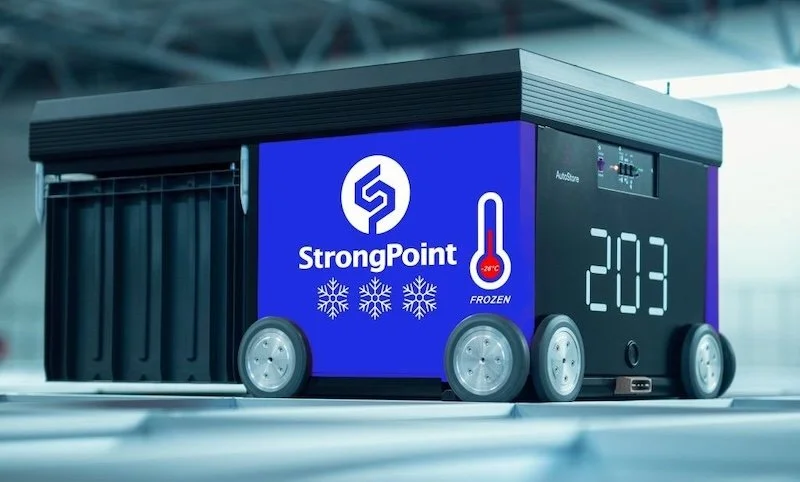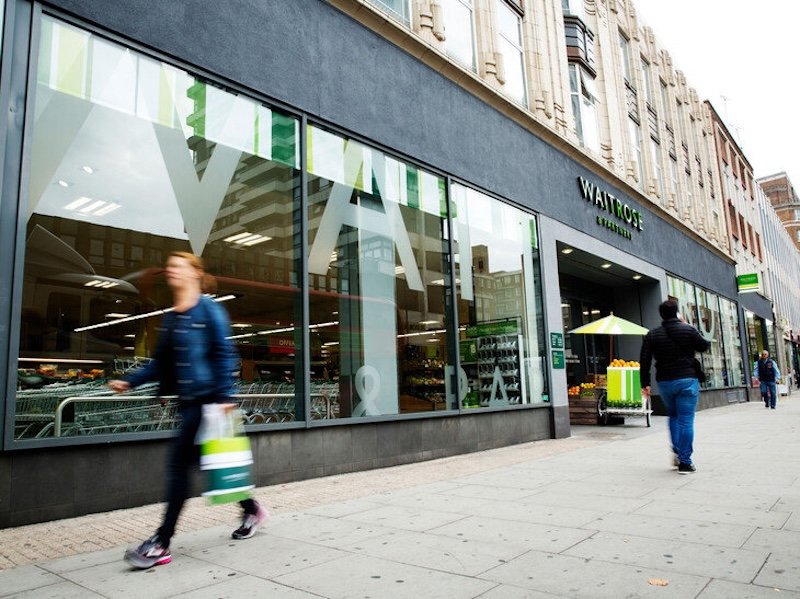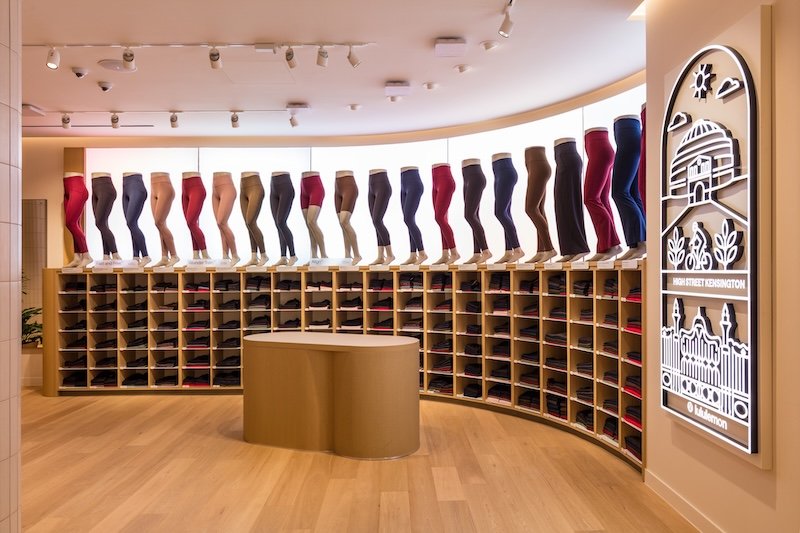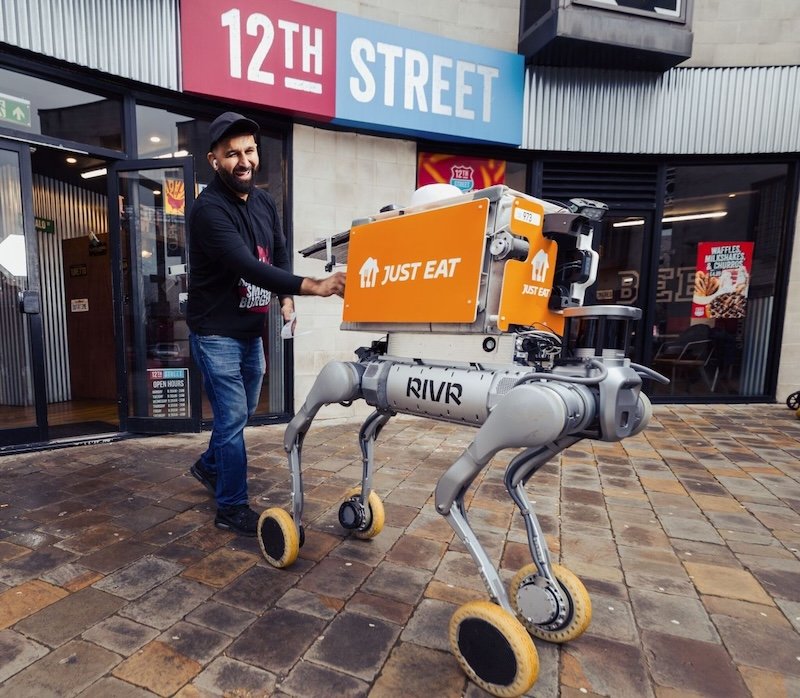Alibaba Group suffers blow and Amazon takes flight: RTIH presents the retail technology week in numbers
Do you like numbers? Do you like retail systems news? Then this is the article for you. Including YouTube, Netflix, Disney, McDonald’s, Domino’s Pizza, GoWit, Snappy Shopper, JD.com, Walmart, Paysafe, Xero, and Userled.
$169.34 billion…Walmart reports that, in Q2, revenue grew 4.8% to $169.34 billion, compared to the $168.46 billion expected. Adjusted earnings also beat estimates at $0.67, a 9.8% year over year increase.
"Each part of the business is growing," CEO Doug McMillon said. "Store and club sales are up, e-commerce is compounding as we layer pickup and even faster growth in delivery as our speed improves."
He added that its online marketplace, membership model, and ad business (which grew 26% globally) helped to diversity the retailer's profits.
$33.47 billion…Alibaba Group missed expectations for the June quarter of 2024 as it grappled with rising competition from the likes of JD.com and Temu owner PDD and a cautious Chinese consumer.
It was a blow to CEO Eddie Wu who, since taking the reins, has been trying to get Alibaba’s core China e-commerce business back on a stable footing.
Over the three months ended 30th June 2024, its quarterly revenue rose 4% year-over-year to RMB243.24 billion ($33.47 billion).
“In this quarter, we continue to execute our plan to invest for growth in our core businesses, while reducing losses in other business units through improvement in operating efficiency,” said Alibaba Group CFO Toby Xu.
$40.7 billion…JD.com, on the other hand, saw its quarterly revenue grow 1.2% to 291.4 billion yuan, or $40.7 billion. That was ahead of estimates of 291 billion yuan, according to FactSet.
£500 million…Amazon has launched a new robotics powered fulfilment centre at Gateway45, Leeds.
This will employ more than 2,000 people by November and recruitment continues for a variety of roles including engineers, HR and IT professionals through to health and safety and finance specialists, as well as the team members who pick, pack and ship customer orders.
The facility utilises technology across three floors of Amazon Robotics to stow, pick and ship customer orders.
The building is located in close proximity to an Amazon delivery station and an Amazon Robotics sortation centre, and less than ten miles from the Wakefield fulfilment centre which started operations in October 2022.
Richard Thompson, Amazon’s Regional Director, says: “West Yorkshire is an important region for us, with more than 3,800 small- and medium-sized enterprise selling partners, and I am delighted to confirm our ongoing commitment with this £500 million investment in a new, state-of-the-art fulfilment centre in Leeds.
45% of UK consumers have changed their spending habits from a year ago, not only becoming more price conscious but demanding payment choice, from debit cards and bank transfers to digital wallets and cash, according to new research from Paysafe.
A total of 14,500 people over 18 years old from UK, USA, Canada, Mexico, Germany, Austria, Bulgaria, Italy, Peru, Chile, Brazil, Colombia, Argentina and Ecuador were surveyed for this. The UK sample size was 1,000 respondents.
The company’s report, ‘Inside the Wallet: How consumers are spending and saving in 2024’, finds that 33% of Brits have abandoned their online shopping cart if a business didn’t offer their payment method of choice.
With retailers increasingly adopting cashless policies, an overwhelming number of consumers (65%) expressed concern about losing cash as a payment option, with another 29% indicating that they want to be able to buy goods or services online and pay for them in cash at a local store.
Security in payments was also top of mind for UK respondents. 62% said that security in a business’s payment process is an important factor when deciding how to purchase online.
69% of consumers also reported feeling better buying from a business if they know there are security steps in place to protect their data or if they see a payment option they recognise.
100…YouTube has leapfrogged Netflix to regain its number one crown in the 100 Coolest Brands for Kids & Teens according to a study of 21,000 youngsters, unveiled today by Beano Brain, the specialist kids and family insights agency.
Brands rooted in storytelling and offering depth and breadth of content - YouTube, Netflix, Nintendo and Disney (9) - all earn places in the top ten.
Food and drink firms dominate the list, accounting for 50% of the top 20 with McDonalds (3), Oreo (7), Pringles (8), Skittles (12), Coca Cola (14), KFC (15), Domino’s Pizza (16), Fanta (17), Cadbury’s (19) and M&Ms (20).
Kids value these products in themselves, but also because they are very closely associated with treats and fun family time.
Social media apps saw their popularity slip with all the major brands dropping down the chart, including TikTok (-7 at 28), Whatsapp (-8 at 38), Snapchat (-3 at 40) and Instagram (-11 at 66).
Once judged as naff and ugly, lightweight shoe brand Crocs was this year’s biggest riser (up 35 places to number 49 ) with collectible plush toy brand Squishmallows the second higher riser, leaping 29 places to break into the top 20 at number 18.
LEGO just nudged into the top ten at number ten, replacing Coca Cola (down 4 to 14) and helped by collaborations with the likes of Minecraft (30).
87% and 73%…New research by Xero has uncovered a disconnect in payment expectations between small businesses and consumers in the UK when it comes to the ways consumers want to pay and how small businesses want to be paid.
6,021 consumers aged 18 and over across the US, UK, Australia, New Zealand and Singapore were surveyed for this, in addition to 2,547 small business leaders in those countries.
In the UK, 87% of consumers use credit or debit cards to make payments and 75% still use cash to make payments.
However, the most common payment method offered by small businesses is bank transfers (73%), followed by cash (60%), and only 55% offering the most preferred method of credit or debit card.
Younger generations are embracing new digital payment methods, with 55% of Gen Z consumers and 49% of Millennials using mobile payments such as Apple Pay or Google Pay. 47% of Gen Z consumers only take their mobile phone to pay when they go to the shop.
Despite this growing demand, only 33% of small businesses offer Apple Pay or Google Pay.
7%…According to a recent Amazon commissioned study of 2,000 British shoppers, two in three people would prefer to buy products that have a more positive environmental and social impact, although the same number struggle to identify them, due to confusing product labelling.
In fact, UK shoppers find building flat-pack furniture (44%), completing a giant crossword puzzle (35%) and cooking an elaborate dinner party from scratch (31%) easier than figuring out the environmental impacts of products when shopping.
As a result, only 7% of Brits say they always understand a product’s environmental impact when they shop.
63% of those surveyed want retailers to help them easily identify products which have a more positive environmental and social impact. This ranges from everyday items like socks and sugar, to personal care products like soap and sunscreen.
200 and 19…Card Factory has agreed an exclusive partnership with Just Eat which will see over 200 items across the retailer’s range of products available on demand for the first time.
It said in an online post: “Our affordable and high quality range of cards, gifts and celebration essentials is now just one click away, with customers able to order from 19 stores across the UK, including Belfast, Cardiff, Glasgow, Manchester and Wakefield.”
“Delivering great value, choice and convenience is key to our growth strategy, and through our partnership with Just Eat, we look forward to bringing our unique proposition to more customers in more places.”
$1.3 million…AdTech firm GoWit has secured $1.3 million in funding to help drive expansion across Europe and MENA.
Headquartered in Delaware, USA, GoWit works with marketplaces and retailers - including Kingfisher - to offer digital and physical advertising spaces to brands.
In turn, those brands, such as Nespresso and Reckitt, benefit from high impact ad formats displayed across onsite, off-site and in-store channels.
In this investment round, it received support from existing investors Formus Capital (based in the USA), APY Ventures, and Mindvest, while welcoming DCP as a new backer.
It follows a $1 million investment announced last year, which has helped the company to grow its teams in the UK, France, the Netherlands, and the Middle East.
$13 billion…Spend on card technology by card issuers will rise from $9.8 billion globally in 2024 to $13 billion in 2029, according to Juniper Research.
This will be driven by banks and other card issuers attracting new customers with differentiated card types.
By using premium options such as metal or wooden cards, banks can differentiate themselves in the highly congested banking market.
Card manufacturers must offer a broad range of solutions, which allow banks and other issuers to choose offerings that match their wider positioning and objectives.
The research found that payment card shipments will stagnate over the next five years, falling by 2% globally between 2024 and 2029. As levels of financial inclusion significantly rise, fewer new accounts are being opened; reducing organic growth.
However, the advent of new card types will help to offset this. For example, metal cards are expected to see an increase in annual shipments of 178% over the next five years, reaching almost 200 million annually by 2029.
Research author Nick Maynard says: "Banks need to create custom card programmes that can target specific user bases, in order to sustain their growth.”
“For card manufacturers, this means both developing distinctive card offerings, and offering services such as modern card issuing platforms to provide a comprehensively effective user experience. If banks fail to introduce new offerings, they will rapidly lose out to more distinctive competitors.”
£4 million…Userled, a startup focused on how B2B companies create and manage personalised marketing campaigns at scale, has raised £4 million in a pre-seed funding round led by LocalGlobe, with participation from Dig Ventures.
The funding will be used to continue hiring talent to build MarTech products.
Founded in 2023 by CEO Yann Sarfati (Revive, former sales lead at Salesforce and Incident.io) and CTO Tristan Saunders (Revive, tech lead at American Express and lead software engineer at nate), Userled is a no-code interface and AI powered platform automating the rapid creation and distribution of tailored, branded marketing campaigns.
Customers can deploy multiple personalised campaigns across all their target platforms from email, Linkedin, Meta and more.
£1,540…Snappy Shopper, an online grocery delivery platform, hosted its first ever retailer charity football match on 31st July, raising £1,540 for the charity GroceryAid.
The event, held at Starks Park in Kirkcaldy, featured two 11-a-side teams composed of Snappy Shopper employees and retailers from across Scotland, including representatives from Premier stores.
Snappy’s red team claimed victory with a 6-4 win.
The match itself raised £770 through donations from both players and spectators. Snappy Shopper then matched this amount.
Grocery Aid offers vital services, including a confidential 24/7 helpline, access to qualified counsellors, and financial grants for those in need.

































Continue reading…